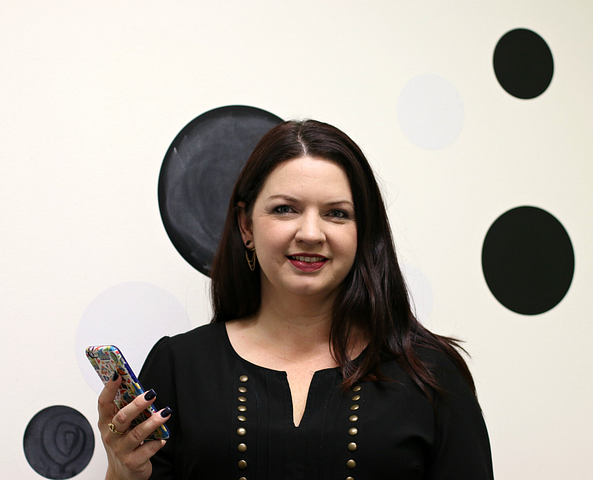
Story and photo by Polly Irungu
UO School of Journalism and Communication students know Kelli Matthews best as a senior instructor and area coordinator for the SOJC’s public relations sequence. But she is also the founder and managing director of Verve Northwest Communications. And if that’s not enough to establish her as a PR and social media expert, she also blogs at PRos in Training about the latest trends, blunders and more in the communications sphere.
With more than a dozen years of PR and communication experience, Matthews is well-positioned to help SOJC undergraduate and graduate students stay informed about social media and public relations best practices as well as what the industry will demand of them post-grad.
As a social media enthusiast, I took Matthews’ strategic social media class last spring and left feeling like a pro. I learned about the latest social media trends, worked with a real client and was able to apply what I was learning to my own personal brand.
Lately, I’ve been spending more time thinking about my social media presence, and I wanted to be sure that I was doing it “right.” I knew if I was thinking about this, then at least one other student must share my sentiments. So I visited Matthews during her office hours and asked for an up-to-the-minute primer.
Here’s what I learned:
Social media is not glorified texting.
Don’t use any social media platform solely for personal conversations. Students tend to use channels like Twitter as a glorified text messenger. This is one reason Matthews may not follow back a student on a platform. She suggests instead using an app like GroupMe, which allows you to have private conversations without leaving a mark on your digital footprint.
Don’t be boring. Be intentional.
Social media is a really powerful networking tool, but you have to think about how you use it. Don’t add to the noise. Matthews suggests that students ask themselves these questions before joining a platform:
- Why am I using these channels?
- How can I use them in a more effective way?
- What’s going to help me make connections or demonstrate that I can use the platforms meaningfully, the way I would be expected to use it in the workplace?
Students might think the answers to those questions are, boring but Matthews doesn’t mean you have to post only suit-and-tie, gray-backdrop headshot kind of content. Potential employers don’t want to hire someone boring either. There has to be a mix, and your best bet is just to be yourself.
Think before you post.
Before clicking “share,” you should think twice about a posting these things, according to Matthews:
- Anything that’s illegal (or recently illegal). No one wants to see that.
- Negativity or whining.
- Anything that falls into the category of sexist, homophobic or racist. If an employer comes across your feed and sees that you're a horrible human being, it will be a deal breaker.
- Trolling, shaming or personal attacks. Keep in mind that we’re all human, and people make mistakes.
